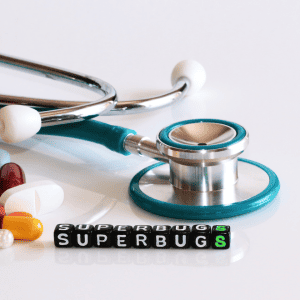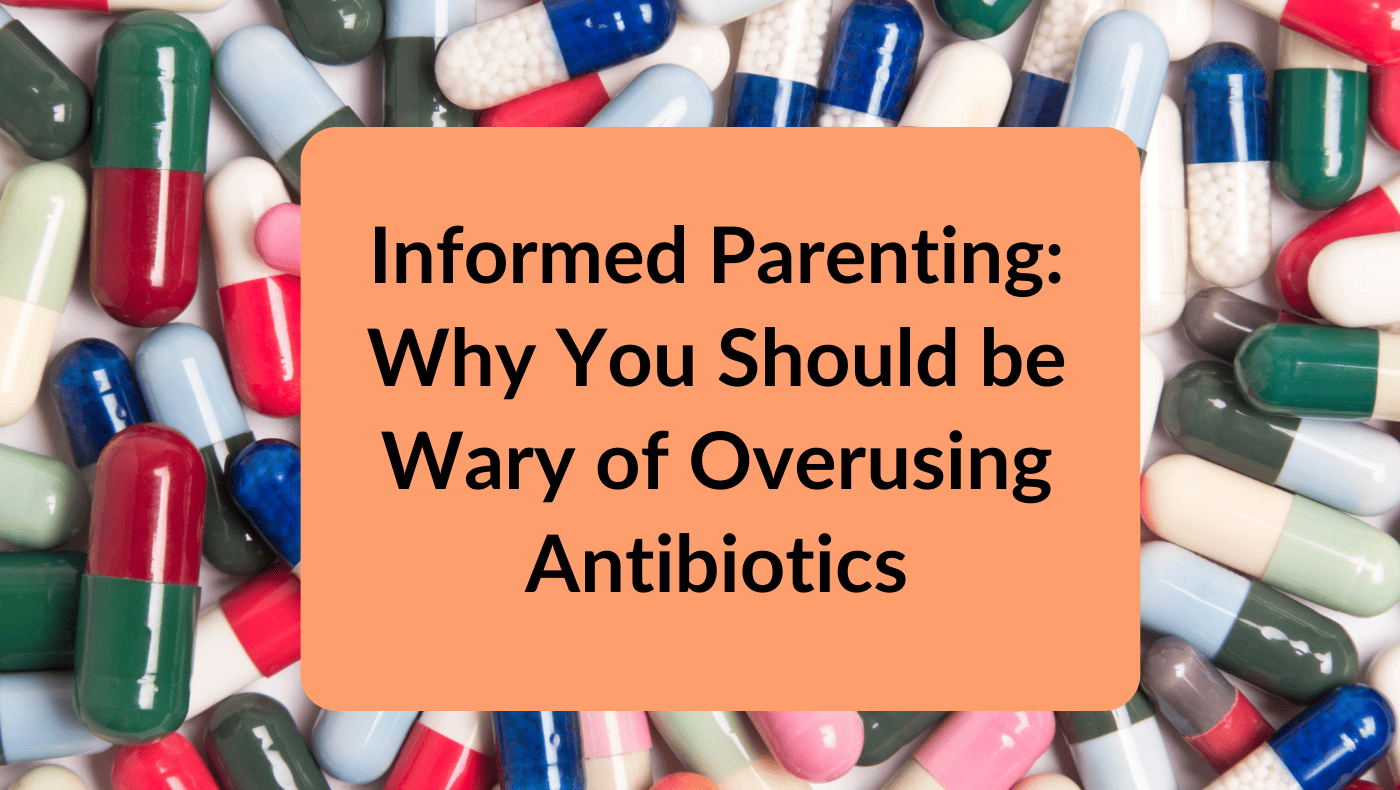Last updated on May 9th, 2024 at 07:11 am
Informed Parenting: Why Parents Should Be Wary of Overusing Antibiotics
Antibiotics have revolutionized the landscape of healthcare, serving as a potent weapon in our arsenal against bacterial infections.
They have saved countless lives and continue to play a vital role in the management of illnesses ranging from minor infections to life-threatening diseases.
However, their ubiquitous presence in modern medicine presents a paradox.
The overuse and misuse of antibiotics in everyday life have become alarmingly common, leading to serious consequences such as antibiotic resistance.
For parents, this issue takes on added significance as it directly pertains to children’s health and well-being.
Striking a balance between leveraging the benefits of antibiotics and mitigating the risks associated with their overuse is crucial for the overall health of not only individual families but also communities at large.
The Basics of Antibiotics and Their Purpose
Antibiotics, a cornerstone of modern medicine, are drugs designed to fight bacterial infections by either stopping bacteria from reproducing or destroying them outright.
They achieve this by interfering with the function of essential structures in bacteria, thereby inhibiting their growth or killing them.
These powerful drugs have played a pivotal role in treating a wide array of illnesses, from common conditions like strep throat and ear infections to more grave illnesses like pneumonia and meningitis.
They have been instrumental in drastically reducing mortality rates associated with such diseases, underscoring their importance in the medical field.
For parents, antibiotics can be lifesavers in real-life scenarios.
For instance, a child with a high, persistent fever, cough, and difficulty breathing may be diagnosed with pneumonia, a potentially severe condition.
In these circumstances, antibiotics might be necessary and effective in treating the infection.
Another scenario could be a child diagnosed with bacterial meningitis, a highly serious and often life-threatening condition.
Prompt antibiotic treatment is most likely crucial to avoid potential complications and improve survival rates.
Despite these undeniable benefits, it’s essential to remember that antibiotics aren’t a one-size-fits-all solution.
Antibiotics, a cornerstone of modern medicine, play a vital role in fighting bacterial infections, but their overuse can lead to antibiotic resistance, posing risks to public health.
The Rising Concern of Overusing Antibiotics
 Overusing antibiotics refers to the excessive and often inappropriate use of these drugs when they are not necessary or beneficial.
Overusing antibiotics refers to the excessive and often inappropriate use of these drugs when they are not necessary or beneficial.
An alarming example of this is the frequent prescription of antibiotics for viral infections like the common cold, against which they are ineffective.
The rising concern of overusing antibiotics is evident in the frequent prescription of these drugs for viral infections, contributing to the development of antibiotic-resistant bacteria.
In the United States, for instance, it’s estimated that up to 50% of all the antibiotics prescribed are not needed or are not optimally effective as prescribed.
The overuse of antibiotics is particularly prevalent among children.
Most often children are being given antibiotics for ear infections, which can often be caused by viruses and therefore do not require antibiotics.
A study published in PubMed found that in the U.S., at least 30% of antibiotics prescribed to children are unnecessary.
This overprescription, in turn, increases their risk of developing antibiotic-resistant infections, wiping out beneficial gut bacteria, and contributing to the development of antibiotic-resistant bacteria.
Antibiotic resistance is a serious global health concern that occurs when bacteria evolve to resist the drugs designed to kill them.
It’s a direct outcome of antibiotic overuse and misuse, rendering these previously effective drugs useless.
Each year in the U.S., millions of people get an antibiotic-resistant infection, and more than 35,000 people die as a result, according to the Centers for Disease Control and Prevention (CDC).
Antibiotic resistance not only endangers individual health but also poses a significant threat to public health and the economy.
According to a review on antimicrobial resistance, by 2050, antibiotic resistance could cause 10 million deaths a year costing the global economic damage on par with the 2008 financial crisis.
These alarming statistics underscore the urgent need to curb the overuse of antibiotics to ensure their continued efficacy and protect future generations.
Practical Tips for Parents to Avoid Overusing Antibiotics
For any parents, it’s crucial to ensure the judicious use of antibiotics to maintain their effectiveness and protect your child’s health.
Here are some practical tips to help navigate the complex issue of antibiotic use:
 Differentiate between Necessary and Unnecessary Antibiotic Use: Understanding that antibiotics are only effective against bacterial infections and not viral ones is a fundamental step. The common cold, flu, and most coughs are caused by viruses, against which antibiotics are ineffective.
Differentiate between Necessary and Unnecessary Antibiotic Use: Understanding that antibiotics are only effective against bacterial infections and not viral ones is a fundamental step. The common cold, flu, and most coughs are caused by viruses, against which antibiotics are ineffective.- Manage Common Ailments Without Resorting to Antibiotics: For non-severe, self-limiting conditions like a cold or mild ear infection, consider using home remedies or over-the-counter treatments first. Adequate rest, hydration, a healthy diet, and symptom-specific treatments (like a saline rinse for a stuffy nose or a warm compress for an earache) can often help manage these conditions successfully.
- Consult a Healthcare Professional for Antibiotic Prescriptions: Antibiotics should only be administered under the guidance of a healthcare professional. If your child’s symptoms persist, worsen, or are severe (like high fever, severe cough, difficulty breathing), consult a healthcare provider to determine if an antibiotic is needed.
- Communicate Openly with Healthcare Providers: When discussing your child’s condition with a doctor, ask if the illness is bacterial or viral, and if antibiotics are necessary. Be sure to understand the potential side effects and the correct dosage and duration of the treatment.
- Understand the Risks Associated with Overusing Antibiotics: Awareness is key. Educate yourself about the dangers of antibiotic resistance and make informed decisions about your child’s health.
Remember, being an informed parent doesn’t mean you need to make these decisions alone.
Healthcare providers are your partners in ensuring your child’s health and well-being and are always there to guide you through it.
You can actively contribute to the fight against antibiotic resistance by differentiating between necessary and unnecessary antibiotic use.
Disclosure: There are affiliate links in this post. If you click the link and buy something, I might get a commission at no additional cost to you! This is what keeps this blog running so consider using these links if you decide to try any of my recommendations.
Natural Alternatives and Food-Based Options to Antibiotics
While antibiotics have their place in modern medicine, it’s also worth considering more natural alternatives when appropriate.
These options can provide relief for minor, non-severe conditions and can support the immune system, thus reducing the need for antibiotics. reducing the reliance on antibiotics and mitigating the risk of antibiotic resistance.
Natural Remedies and Supplements
- Echinacea: This plant is often used in tea form to treat and prevent colds, flu, and other viral infections.
- Vitamin C: Regular intake of this critical vitamin can boost the immune system and increase resistance to infections.
- Zinc: This mineral is known to support immune function and can be particularly useful in fighting off common colds.
- Elderberry: Available as a supplement or syrup, elderberry could potentially reduce the severity and duration of some viral illnesses.
Food-Based Alternatives
- Garlic: Known for its natural antibiotic properties, garlic can help fight simple infections. A component called allicin is responsible for its health benefits.
- Honey: Particularly Manuka honey, has potent antibacterial properties and can be used to ease sore throats and mild coughs.
- Fermented Foods: Foods like yogurt and kimchi provide probiotics and beneficial bacteria that can support the immune system and promote a healthy gut microbiome.
Additional Natural Alternatives
- Colloidal Silver: Colloidal silver consists of tiny silver particles suspended in a liquid. It has been used traditionally for its antibacterial and antiviral properties. However, it should be used judiciously, as excessive intake could lead to silver accumulation in the body.
- Goldenseal: This herb is often used in herbal medicine for its antimicrobial and immune-boosting effects. It’s commonly taken to help fight off colds and other respiratory infections.
- Myrrh: Known for its powerful antiseptic and anti-inflammatory benefits, myrrh can help support the body’s natural defense mechanisms.
- Neem: Neem leaves and oil are widely used in traditional medicine due to their antibacterial, antiviral, and antifungal properties. Neem can help in fighting against infections and boosting overall immunity.
Remember to consult with a healthcare provider before starting any new supplement or natural remedy, as they may interact with other medications or have side effects.
Remember, these alternatives should not replace medical advice. Always consult with a healthcare provider, especially if symptoms are severe or persist.
 In conclusion, antibiotics are a powerful medical tool that has transformed health care, saving countless lives and dramatically reducing mortality rates from various illnesses.
In conclusion, antibiotics are a powerful medical tool that has transformed health care, saving countless lives and dramatically reducing mortality rates from various illnesses.
However, the overuse and misuse of these drugs have led to the alarming rise of antibiotic resistance, a grave global health concern that renders these life-saving drugs ineffective.
It is crucial for you to understand that antibiotics are not a panacea.
They are only effective against bacterial infections and are futile against viral infections such as the common cold.
It’s advisable to manage common, non-severe ailments using home remedies or over-the-counter treatments first, and only resort to antibiotics when absolutely necessary and prescribed by a healthcare professional.
Open communication with your healthcare providers, understanding the risks of overusing antibiotics, and being fully aware of their intended use and potential side effects are key in making informed health decisions.
It’s your responsibility as a parent to ensure the judicious use of antibiotics, not just for the wellbeing of our children, but for the health of our society and future generations.
Armed with knowledge and understanding, you can make decisions that ensure the continued efficacy of antibiotics and safeguard your family’s health.
Additional Resource:
- Discover Support and Resources
- Ear Infection Home Remedies
- The Benefits of Using Pure Essential Oils
- Natural Fever Reducers for Kids





0 Comments